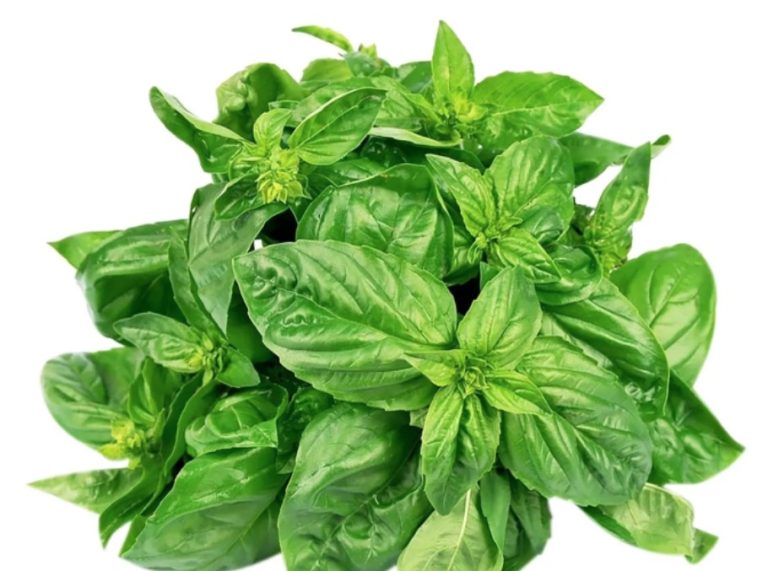Basil is healthy and adds a tangy flavor to various dishes. Here you can find out more about the properties and possible uses of the herb.
Basil is an essential herb in Mediterranean cuisine. With its aromatic, spicy aroma, it refines pasta, pizza, vegetable pans or salads. Already in ancient Greece and Rome, basil was used to refine dishes and as a remedy for various diseases. The herb plays an important role not only in Europe, but also in other cultures: for example, it is an important part of Ayurvedic cuisine.
Basil is originally native to the tropics of South America, Asia and Africa. Today it is also cultivated in European countries. Basil is also grown in Germany. The type of basil most used in this country is the so-called shrub basil. In addition to this, there are over 60 other types of basil, such as lemon or Thai basil.
Basil is so healthy

Basil owes its intense smell and taste to the essential oils it contains. But the herb not only tastes good: basil is also healthy. It is particularly rich in magnesium, iron, potassium and calcium. Basil also contains significant amounts of vitamin A and some B vitamins. In order for these micronutrients to actually help cover your daily requirement, you have to eat a larger portion of basil (at least 20 grams). With the help of a pesto or processed in a salad, this is not a problem.
Incidentally, per 100 grams, basil provides you with around 46 kilocalories, 2.4 grams of protein and 7.5 grams of carbohydrates. There is hardly any fat. After all, the herb also consists of 3.1 percent fiber.
Basil: Healthy Remedy
Basil is not only healthy, but is also used as a remedy. In the form of tea, basil oil or ready-made capsules, it can provide relief for various ailments. This is due to the essential oils it contains. So far, they have not been scientifically confirmed as far as possible, but are based on traditions and experiences of naturopathy. Together with other medicinal herbs, basil helps in particular with:
bloating and flatulence
loss of appetite
digestive problems
In Indian medicine, for example, it is also used for skin diseases, menstrual cramps, earaches or fever. Traditional Chinese medicine (TCM) uses basil for stomach cramps or kidney and gum problems.
Basil: buying tips
You can buy fresh basil in most supermarkets, either loose leaves or in a pot. For ecological and economic reasons, we recommend the latter option: if you buy basil in a pot, you save on unnecessary plastic packaging and can cultivate the plant directly in the garden or on the balcony. In this way, new leaves keep growing and you can benefit from the plant for longer.
Alternatively, you can also use dried basil. In all cases, you should pay attention to organic goods if possible. In this way you support ecological agriculture that works without chemical-synthetic pesticides. This not only makes the basil healthy, but also protects biodiversity. Also try to buy basil locally if possible. It’s best to buy it between June and September – that’s when the herb is in season in Germany.
Another option is to grow a basil plant from seed yourself. You can find more information here: Planting basil: when, where and how to care for it
Here’s how you can use basil

Basil gives various dishes a spicy aroma. If you process it into basil pesto, you can not only serve it well with pasta, but also make it last longer thanks to the oil. You can also use basil in a fresh tomato salad or zucchini salad.

